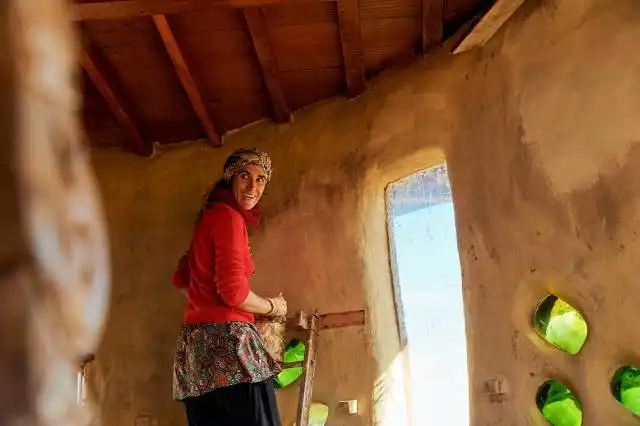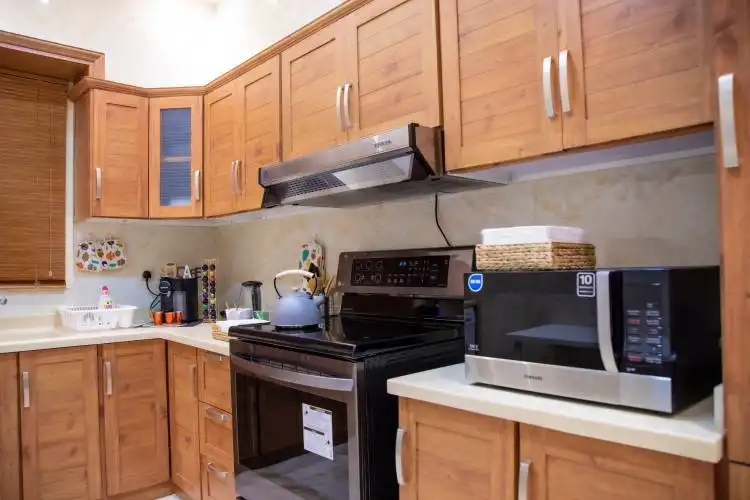Start a Construction Contractor Business
Conducting the Symphony of Building Dreams
| Updated


CONSTRUCTION CONTRACTOR BUSINESS
Embark on an entrepreneurial quest as a Construction Contractor, where your office could be a bustling construction site under the open sky. This business involves managing projects like building homes, offices, or renovating spaces, transforming blueprints and dreams into reality. Imagine being the maestro conducting an orchestra of carpenters, electricians, and plumbers, everyone pitching in to create a symphony of bricks and beams. Be the foundation upon which people's dream spaces are built.
Jump to Business Plan
RELATED BUSINESS IDEAS
Browse ALL Construction & Real Estate Business Ideas
Discover Your Perfect Domain
Unlock the door to your online success with our hand-picked selection of premium domain names. Whether you're starting a new venture or rebranding an existing one, the right domain can set the tone for your digital presence. Browse through our curated list, each with its unique potential to enhance your brand's visibility and credibility.
CONSTRUCTION CONTRACTOR MINI BUSINESS PLAN
This a quick reality check to help you identify the strengths and weaknesses of your business concept before you dive in.
Expected Percent Margin:
- Gross Margin: 30-40%
- Net Profit Margin: 10-20%
Earnings Expectations:
- Daily Earnings: $1000 - $2000
- Weekly Earnings: $5000 - $10,000
- Monthly Earnings: $20,000 - $40,000
- Annual Earnings: $240,000 - $480,000
Actions to Hit Those Numbers:
Staff and Operations:
- Sourcing Labor: Employ skilled labor either through direct hiring or subcontracting.
- Managing Projects: Handle 1-3 construction projects concurrently, depending on project size.
Marketing and Bidding:
- Marketing Efforts: Develop an online presence, use word-of-mouth referrals, and encourage customer reviews.
- Bidding on Projects: Regularly bid on various commercial and residential construction projects.
Revenue Generation:
- Project Pricing: Determine building costs, profit margins, and competitive pricing per project.
- Invoice Management: Ensure swift billing and collections on completed project stages.
Cost Control:
- Material Procurement: Establish strong relationships with suppliers for quality materials at lower costs.
- Efficiency: Streamline operations to reduce waste and complete projects on time and within budget.
Licensing:
- Business License: Obtain all necessary construction contracting licenses specific to your area.
These estimates greatly depend on the construction market in your locale, economic conditions, your business acumen, and many other factors. For precise understanding and planning, consult with a financial advisor or business consultant.
NOT WHAT YOU HAD IN MIND? Here are more ideas



Browse ALL Construction & Real Estate Business Ideas
Grab Your Business Website Name
Before you get caught up in the whirlwind of setting up your business, invest in a domain name. It's a small but significant step that lays the foundation for your brand and makes it easier for customers to find and trust you. Just like you wouldn't build a house without securing the land first, don't build a business without securing your domain name.
"Why? Can't that wait?" Here's why it shouldn't
Step 1: Determine if the Business is the Right Endeavor
Breakdown of Startup Expenses
Before starting a construction contractor business, it is important to determine if the business is the right endeavor. This includes researching the startup costs associated with the business. These costs can include the cost of equipment, materials, and labor. It is also important to consider the cost of any permits or licenses that may be required to operate the business. Additionally, the cost of insurance should be taken into consideration. Finally, the cost of marketing and advertising should be factored in to the startup expenses.
Breakdown of Ongoing Expenses
Once the startup costs have been determined, it is important to consider the ongoing expenses associated with the business. These expenses can include the cost of labor, materials, and equipment. It is also important to consider the cost of insurance, permits, and licenses. Additionally, the cost of marketing and advertising should be taken into consideration. Finally, the cost of utilities, such as electricity and water, should be factored in to the ongoing expenses.
Examples of Ways to Make Money
Once the startup and ongoing expenses have been determined, it is important to consider ways to make money. This can include bidding on jobs, offering services to clients, and taking on subcontracting work. Additionally, it is important to consider offering services to both residential and commercial clients. It is also important to consider offering services to local, state, and federal government agencies. Finally, it is important to consider offering services to other construction contractors.
Step 2: Name the Business
When naming a construction contractor business, it is important to choose a name that is memorable and reflects the services that the business provides. It should also be easy to pronounce and spell. Additionally, it is important to make sure that the name is not already in use by another business, as this could create legal issues. It is also a good idea to run a search to make sure that the domain name is available for the business. This will allow the business to have an online presence and a website.
When selecting a name, consider the target audience and the services that the business will provide. It is also important to consider the brand that the business wants to create. Additionally, the name should be easy to remember and be unique enough to stand out from the competition.
Once a name has been chosen, it is important to register the business with the state and obtain a business license. This will allow the business to operate legally and protect the business from any potential legal issues. Additionally, the business will need to register the name with the United States Patent and Trademark Office to ensure that the name is legally protected. This will also help the business to stand out from the competition.
Finally, it is important to create a logo for the business. This will help to create a recognizable brand and will be used on all of the business’s marketing materials. Additionally, the logo should be easy to remember and should reflect the services that the business provides.
Step 3: Create a Business Plan
Creating a business plan is essential to starting a construction contractor business. The plan should include a detailed description of the business, the services offered, the target market, the competition, the marketing strategy, the financial projections, and the management team. It should also include an analysis of the industry, the company’s strengths and weaknesses, and the company’s goals and objectives.
How to Write a Business Plan
When writing a business plan, it is important to be as detailed and thorough as possible. Start by researching the industry and the competition. This will help you understand the market and the potential for success. Next, create a detailed description of the business, the services offered, and the target market. Then, create a marketing plan that outlines how you will reach your target market. After that, create financial projections that include both startup costs and ongoing expenses. Finally, create a management team that includes the skills and experience needed to run the business.
Step 4: Get the Necessary Licenses and Permits
Before starting a construction contractor business, it is important to understand what licenses and permits are required. Depending on the state, different licenses and permits may be needed in order to legally operate a business. Generally, a business license, contractor’s license, and a building permit are required. Additionally, some states may require additional permits such as a zoning permit or a health permit. It is important to research the requirements in the state the business will be operating in order to ensure all necessary licenses and permits are obtained.
How to Obtain the Licenses and Permits
Once the necessary licenses and permits have been identified, the next step is to obtain them. Depending on the state, the process for obtaining the licenses and permits may vary. Generally, the process involves submitting an application, providing proof of insurance, and paying a fee. Additionally, some states may require a background check or a bond to be submitted. It is important to contact the local government office to understand the process for obtaining the necessary licenses and permits.
Benefits of Obtaining the Necessary Licenses and Permits
The benefits of obtaining the necessary licenses and permits are numerous. First, having the proper licenses and permits will ensure the business is legally operating. Additionally, having the proper licenses and permits will help to build trust with customers and potential customers. Furthermore, having the proper licenses and permits will help to protect the business from potential lawsuits. Lastly, having the proper licenses and permits will help to ensure the business is in compliance with local laws and regulations.
Step 5: Find a Location
When choosing a location for a construction contractor business, it is important to consider the type of services your business will provide and the size of the business. For example, if you plan to provide residential construction services, you may want to choose a location that is close to residential areas. If you plan to provide commercial construction services, you may want to choose a location that is close to commercial areas. Additionally, you should consider the size of the business and the amount of space you will need for equipment, supplies, and employees. If you plan to have a large construction business, you may want to choose a location with plenty of space for expansion.
Research Local Regulations
When choosing a location for a construction contractor business, it is important to research local regulations. Different areas have different regulations regarding construction businesses, such as zoning laws, building codes, and safety regulations. Additionally, you should research any local permits or licenses that may be required to operate a construction business in the area. It is also important to research any local taxes that may be applicable to your business. Knowing the local regulations in advance can help you plan for any potential issues and ensure that your business is compliant with all applicable laws.
Consider the Cost of Rent
When choosing a location for a construction contractor business, it is important to consider the cost of rent. Rent can vary greatly depending on the size and location of the space. Additionally, you should consider any additional costs associated with the space, such as utilities, insurance, and maintenance. It is important to find a space that fits within your budget and allows you to operate your business efficiently.
Consider Accessibility
When choosing a location for a construction contractor business, it is important to consider accessibility. You should choose a location that is easily accessible to both clients and employees. Additionally, you should consider the proximity to suppliers and vendors that you may need to work with. This will help ensure that you can easily access the materials and services you need to run your business.
Step 6: Purchase Equipment
When starting a construction contractor business, there are certain pieces of equipment that are necessary to get the job done. This includes large items such as bulldozers, excavators, and cranes, as well as smaller items such as power tools, ladders, and scaffolding. It is important to research the types of equipment needed for the specific types of jobs the business will be taking on.
Where to Purchase
Once the types of equipment needed have been determined, the next step is to decide where to purchase them. New equipment can be expensive, so it is important to shop around to find the best deals. Many construction companies purchase used equipment from other businesses, as well as from online auction sites. It is also possible to rent equipment for short-term projects.
Financing Options
For those who cannot afford to purchase the necessary equipment outright, there are financing options available. Many banks and other lenders offer loans specifically for businesses that need to purchase equipment. It is important to research the different financing options to find the best rates and terms.
Insurance
Finally, it is important to purchase insurance for the equipment. This will help to protect the business in case of any accidents or damage to the equipment. It is important to research the different types of insurance available and to find the best coverage for the business.
Step 7: Hire Employees
When hiring employees, it is important to consider the skills and experience they possess and how they will fit into the business. It is also important to consider the cost of hiring employees, as this can have a significant impact on the bottom line. Additionally, it is important to make sure that the employees are properly trained and that they understand the company’s policies and procedures. It is also important to make sure that the employees are properly compensated and that they are provided with the necessary benefits. Finally, it is important to make sure that the employees are properly supervised and that they are held accountable for their actions.
Benefits of Hiring Employees
Hiring employees can be beneficial to a construction contractor business in several ways. First, having employees can help to increase productivity and efficiency, as they can help to complete tasks more quickly. Additionally, having employees can help to reduce the amount of time spent on administrative tasks, as they can help to handle paperwork and other administrative tasks. Finally, having employees can help to reduce the amount of stress on the business owner, as they can help to take on some of the responsibilities of running the business.
Step 8: Market the Business
The most effective way to market a construction contractor business is to create a website and use social media to spread the word. Additionally, it is important to create a logo and slogan that will help to brand the business. Networking with other contractors and joining local business organizations can also help to spread the word. Additionally, it is important to create business cards and flyers to distribute to potential clients.
Tips for Effective Marketing
When marketing a construction contractor business, it is important to focus on the services offered and the target market. It is also important to create a marketing plan that outlines the budget, goals, and strategies for reaching potential customers. Additionally, it is important to track the results of the marketing efforts to ensure that the strategies are effective. Finally, it is important to be consistent with the marketing efforts to ensure that the business is reaching the right people.
Step 9: Keep Accurate Records
Keeping accurate records is essential for any business, and a construction contractor business is no exception. It is important to keep track of all financial transactions, including income and expenses. Additionally, records should be kept of any contracts or agreements made with clients or subcontractors. Finally, records should be kept of any materials purchased, as well as any employees hired and their wages.
Why Records Should be Kept
It is important to keep accurate records for a variety of reasons. First, it is important to have an accurate record of income and expenses for tax purposes. Additionally, accurate records can help to ensure that the business is compliant with any applicable laws or regulations. Finally, keeping accurate records can help to ensure that the business is running efficiently and that any potential problems can be identified and addressed quickly.
How to Keep Accurate Records
There are a variety of ways to keep accurate records. The most important thing is to make sure that all records are kept in an organized manner. Additionally, it is important to make sure that all records are up to date and accurate. Finally, it is important to make sure that records are backed up in case of any potential data loss.
EXPLORE MORE CATEGORIES
Browse ALL Business Idea Categories
TAKE THE NEXT STEPS










